The Christian influences on the British founder of Rugby, Tennessee
- Oops!Something went wrong.Please try again later.
- Oops!Something went wrong.Please try again later.
- Oops!Something went wrong.Please try again later.
Carolyn Krause concludes a two-part series on Historic Rugby with a review of the life, novels and vision of Thomas Hughes, the British lawyer and politician who founded the utopian community on East Tennessee’s Cumberland Plateau. This article is based largely on the perspective of Fred Bailey, retired professor of history at Abilene Christian University and published author of articles and books; he has been teaching courses on Queen Victoria’s England at the Oak Ridge Institute for Continued Learning, or ORICL, at Roane State Community College’s Oak Ridge campus. Recently, he gave an ORICL lecture on the history of Rugby and on the story about its famous founder and his childhood mentor.
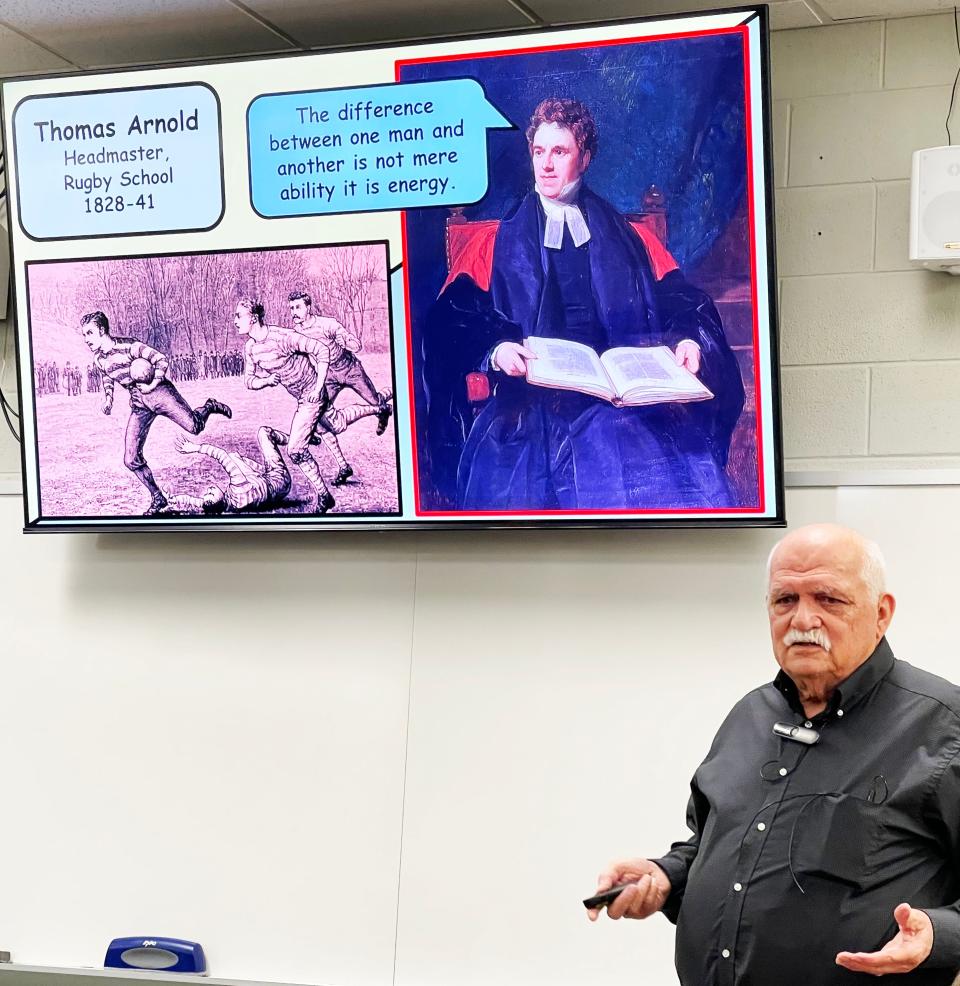
On Saturday, Oct. 7, Historic Rugby (1331 Rugby Parkway, Rugby, Tennessee) will hold its annual Founder’s Day for honoring Thomas Hughes and awarding “someone else from recent history instrumental in propelling Historic Rugby and Hughes’ now-renowned village into the present and future.” The event will feature artists and crafters on site, food at The Canteen and a concert by the Rugby Cornet Band.
Visit www.historicrugby.org for information on upcoming events. Enjoy the conclusion of Carolyn’s story about Rugby.
***
The utopian community of Rugby, Tennessee, founded by Thomas Hughes, an English lawyer, judge and politician best known for his children’s novel “Tom Brown’s School Days” (1857), reflected Hughes’ values and vision. According to Fred Bailey in his recent ORICL lecture on Rugby, “One volume always on display in the Thomas Hughes Public Library in Rugby, which is across from the chapel, is the children’s book Hughes wrote entitled ‘Tom Brown’s School Days.’ It was an incredible little book because of its influence. The American president, Theodore Roosevelt, read it as a boy and said every boy should read it.”

Bailey said that Hughes’ first children’s novel is “not as famous to most people today as children’s novels of the 19th century such as Lewis Carroll’s ‘Alice in Wonderland’ or Mark Twain’s ‘Adventures of Tom Sawyer’ and ‘Adventures of Huckleberry Finn.’ If I had to make the argument which one of these was the most incredibly and overwhelmingly influential of all the books written by Englishmen and Americans in the 19th century, I would rank Hughes’ children’s book in the top five.”
Hughes, who attended Rugby School in England from 1834 to 1842, based his children’s novel on his adventures there, including defeat by and later triumph over the bully Flashman, with the help of his more experienced classmate, Harry “Scud” East, and a comical boy named Diggs. Tom Brown, modeled after the author’s brother George, was then asked to befriend and protect George Arthur, a frail, sensitive and brilliant boy. The peak of Tom’s school career was a successful cricket match based on the author’s own experiences.
The real-life character influencing Tom Brown was the headmaster, Thomas Arnold (1795-1842), who influenced Thomas Hughes. Tom Brown engaged in fighting to defeat a bully and using his athleticism to excel in cricket, rugby and other sports at school. According to Wikipedia, as headmaster of Rugby School from 1828 to 1841, Arnold “introduced several reforms that were widely copied by other noted public schools. His reforms redefined standards of masculinity and achievement.”
According to Bailey, Arnold emphasized the importance of moral and intellectual development in the education of boys but, to reduce fighting among the boys, he did encourage sports such as cricket and rugby, a sport invented in 1823 at the school.
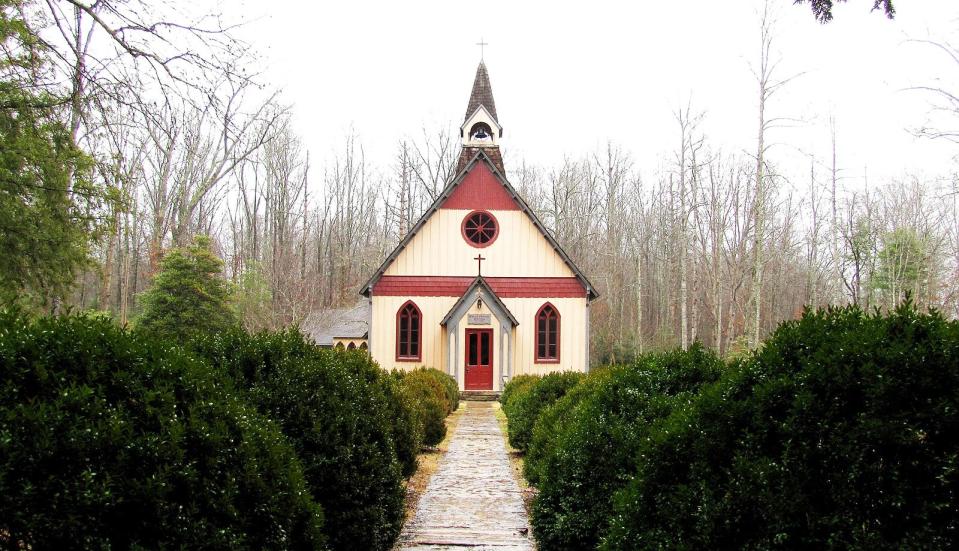
"Arnold came up with the idea that sports and other physical activity should be very much a part of an educated man,” Bailey said. “The Apostle Paul said that ‘your body is a temple for your spirit’ so Arnold believed there is a spiritual aspect of physical activity.”
Baron de Coubertin, a French educator and historian known as the father of the modern Olympic Games, became active in promoting the introduction of sports in French schools after visiting Rugby School in 1886 and learning about the late Thomas Arnold. De Coubertin considered Arnold “the father of the organized sports he admired when he visited English public schools” and the reason why so many schools have playing fields.
According to Wikipedia, “When looking at Arnold’s tomb in the school chapel, he recalled that he felt suddenly as if he were looking on ‘the very cornerstone of the British empire.’ Coubertin is thought to have exaggerated the importance of sport to Thomas Arnold, whom he viewed as ‘one of the founders of athletic chivalry.’ The character-forming influence of sport, with which Coubertin was so impressed, is more likely to have originated in Hughes’ novel ‘Tom Brown’s School Days.’”
For Hughes, sports and physical activity were so important that he made sure the residents of Rugby, Tennessee had many recreational opportunities. According to the Historic Rugby website, “Lawn tennis grounds were laid out and used frequently. Colonists and visitors enjoyed rugby, football, horseback riding, croquet and swimming in the clear flowing rivers surrounding the townsite.”
Largely because of his religious education and physical activities at Rugby School, Hughes embraced Christian socialism and Muscular Christianity. Christian socialism (called the “social gospel movement” in the United States) regards capitalism to be rooted in the sin of greed and to be the cause of social inequality, poverty, illiteracy, and warmongering. Like Arnold, Hughes wanted religion to make a difference by improving society during an era of industrialization and urbanization.
This religious and political philosophy enabled the British people under Queen Victoria to justify “controlling one-fourth of the world because they believed they were doing good by spreading the glories of English Christian civilization across the globe,” Bailey said. “Arnold’s religious ethos became the religion of empire; of an England that carved up Africa, that overawed India and the Far East, and that had set its sights upon domination of world trade through the construction of a canal across the Isthmus of Panama.”
The same year that Hughes founded Rugby, he published the sequel “Tom Brown and Oxford,” which used the term muscular Christianity. This philosophical movement that originated in England in the mid-19th century valued patriotic duty, discipline, self-sacrifice, masculinity, and the moral and physical beauty of athleticism. Hughes’ book, Bailey said, declared that “a man’s body is given to be trained, brought into subjection and then used for the protection of the weak, the advancement of all righteous causes and the subduing of the earth which God has given the children of men.”
According to Bailey, the Young Men’s Christian Association (YMCA) was an important outgrowth of Christian socialism in England and America’s similar social gospel movement, which emphasized living Jesus’ teaching to “love one’s neighbor” rather than living only by faith in the Christian religion’s doctrines and sacraments. The first YMCA, founded in 1844 in London by George Williams, was initially intended as a refuge for young men seeking escape from street hazards such as gambling, drinking and prostitution. Williams also sought to attract young men like himself who desired to work together on tackling social problems.
The first YMCA in the United States, which opened late in 1851 in Boston, was founded by Capt. Thomas Valentine Sullivan, an American seaman and missionary. Bailey said that in addition to the YMCAs, other American outgrowths of the social gospel movement were the mainline American denominations that had social agendas (such as the United Methodist and United Presbyterian churches), the National Council of Churches and the American Civil Liberties Union.
While the sport of rugby was invented and played at England’s Rugby School, which had a strong Christian influence in the 19th century, the American game of basketball also had Christian-related roots. It was devised in the winter of 1891-1892 by James A. Naismith, an instructor at the YMCA Training School in Springfield, Massachusetts.
Thomas Hughes, founder of Rugby, Tennessee, and an outstanding athlete at England’s Rugby School, would likely be comfortable in 21st century East Tennessee. This region in the Bible Belt offers social services through churches and nonprofit service organizations. And its fans faithfully follow University of Tennessee and other school teams that play football, basketball, soccer, tennis and even rugby.
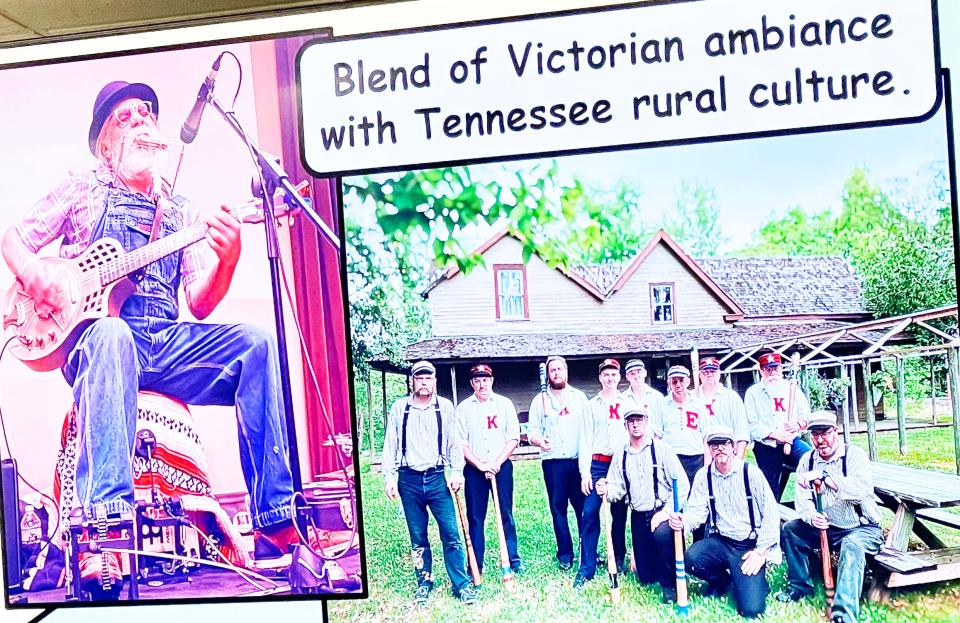
***
I hope you have enjoyed Carolyn’s stories about Rugby. It is a most interesting place to visit. I enjoyed being invited to speak on Oak Ridge history there a few years ago and Fanny and I spent the night in the historic Newbury house. What a delightful experience. Also, there are several trails nearby and the library is amazing, as is the restaurant. Rugby is a really neat place to visit.
D. Ray Smith is the city of Oak Ridge historian and his "Historically Speaking" column appears each week in The Oak Ridger.
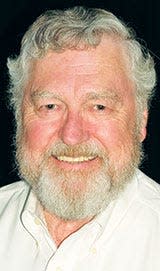
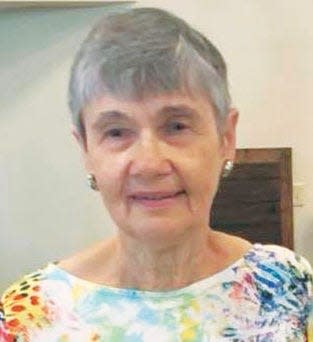
This article originally appeared on Oakridger: The Christian influences on the British founder of Rugby, Tennessee

